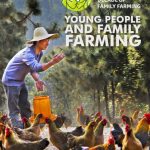
10 downloads
Title of document: Young people and Family farming Authors: WCC Journal’s name if any: Ministry/Government Agency/Organisation: WCC Year of publication: 2018 Geographic focus: General Main issues / topics addressed (for example: Introduction; Young People and Family Farming –Challenges; Family Farming and Youth: Potential; Reflexions From Practical Experiences…) School of agroecology (if any): Web address to original document (if any): http://www.familyfarmingcampaign.org/archivos/documentos/young_people_and_family_farming_en.pdf Summary: The main objective of this study is to describe the current situation and contribute to setting out a common position on youth development in family farming. The conclusions reached will therefore be taken into account in the policy lobbying on behalf of young people in the IYFF+10 campaign. Read More
7 downloads
Title of document: G-STIC 2017 “Agroecology for Sustainable Food Systems” Authors: Lim Li Ching Journal’s name if any: Ministry/Government Agency/Organisation: G-STIC 2017 Year of publication: 2018 Geographic focus: Global level Main issues / topics addressed (for example: G-STIC 2017 - Agroecology summary “Agroecology for Sustainable Food Systems”…) School of agroecology (if any): Web address to original document (if any): Summary: This paper was prepared as a background document for the thematic session on ‘Agroecology for Sustainable Systems’ at the Global Science, Technology and Innovation Conference (G-STIC) 2017. G-STIC 2017 was held in Brussels from 23rd to 25th October 2017 Read More
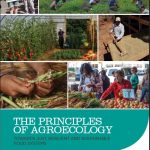
10 downloads
Title of document: The Principles of Agroecology: Towards Just, Resilient and Sustainable Food Systems Authors: CIDSE Journal’s name if any: Ministry/Government Agency/Organisation: CIDSE Year of publication: 2018 Geographic focus: Global level Main issues / topics addressed (for example: The environmental dimension of agroecology; The social and cultural dimension of agroecology; The economic dimension of agroecology; The political dimension of agroecology…) School of agroecology (if any): Web address to original document (if any): https://www.cidse.org/publications/just-food/food-and-climate/the-principles-of-agroecology.html Summary: This paper is an attempt to clarify what agroecology means, what it looks like and show that, when taken as a whole, agroecology and its various principles can lead to tremendous positive effects in terms of human rights and the right to food. An infographic completes this publication. It is published as part of a broader online multimedia dossier which includes related background documentation and video interviews. Our objective is to further develop a joint vision and understanding of agroecology. We will continue our dialogue with partner organisations and allies as well as with decision makers. The document is a living one which will be updated within the next 1.5 year Read More
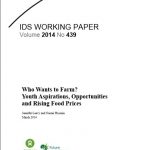
5 downloads
Title of document: Who Wants to Farm? Youth Aspirations, Opportunities and Rising Food Prices Authors: Jennifer Leavy and Naomi Hossain Journal’s name if any: Ministry/Government Agency/Organisation: OXFARM, DEV, IDS Year of publication: 2014 Geographic focus: Global Level Main issues / topics addressed (for example: Who wants to be a farmer? What the literature says; Approach and methodology; Findings; Conclusions…) School of agroecology (if any): Web address to original document (if any): Summary: This paper explores these conditions in a context of food price volatility, and in particular rising food prices since 2007. To do so, it analyses primary qualitative research on the attitudes of young people and their families to farming in 2012, a time when food prices had been high and volatile for half a decade. In theory, assuming higher prices benefit small farmers, food farming should be more attractive since food prices started to rise in 2007. But this simple causal assumption overlooks both that in many developing countries, it takes considerable economic power - ownership or access to cultivable land and affordable credit for inputs - to turn a profit in farming. It also fails to take into account more sociological explanations governing work and occupational choice - status aspiration and merit on the one hand, and perceived risk on the other. These two explanations help to explain why young people from relatively low income families, particularly those most likely to innovate and raise productivity levels, do not perceive farming as a realistically desirable occupational choice Read More
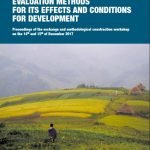
4 downloads
Title of document: The exchange and methodological construction workshop “Agro-Ecology: evaluation methods for its effects and conditions for development” _ Version English & French Authors: AGTAE, Agrisud, AVSF, CARI and GRET Journal’s name if any: Ministry/Government Agency/Organisation: AGTAE, Agrisud, AVSF, CARI and GRET Year of publication: 2017 Geographic focus: General Main issues / topics addressed (for example: Proceedings of the exchange and methodological construction workshop on the 14th and 15th of december 2017…) School of agroecology (if any): Web address to original document (if any): Summary: Proceedings of the exchange and methodological construction workshop “Agro-Ecology: evaluation methods for its effects and conditions for development” on the 14th and 15th of december 2017 Read More
2 downloads
Title of document: Integrating Agroecology and Participatory Action Research (PAR): Lessons from Central America Authors: V. Ernesto Méndez , Martha Caswell, Stephen R. Gliessman and Roseann Cohen Journal’s name if any: Sustainability Ministry/Government Agency/Organisation: MDPI Year of publication: 2017 Geographic focus: Central America Main issues / topics addressed (for example : Characteristics and Principles of PAR; Integrating Agroecology and PA; Case Study; Conclusions: Future Directions for Integrating Agroecology and PAR ……) School of agroecology (if any): Web address to original document (if any): http://www.mdpi.com/2071-1050/9/5/705/pdf Summary: This article aims to: (1) analyze the key characteristics and principles of two case studies that integrated PAR and agroecology in Central America; and (2) learn from the lessons offered by these case studies, as well as others from the literature,onhowtobetterintegratePARandagroecology.KeyprinciplesidentifiedforeffectivePAR agroecological processes include a shared interest in research by partners, a belief in collective power/action, a commitment to participation, practicing humility and establishing trust and accountability. Important lessons to consider for future work include: (1) research processes that did not start as PAR, can evolve into it; (2) farmer/stakeholder participation in setting the research agenda, from the outset, results in higher engagement and enhanced outcomes; (3) having the right partners for the desired outcomes is key; (4) intentional and explicit reflection is an essential component of PAR processes; and (5) cross-generational collaborations are crucial to long-term benefits. Key challenges that confront PAR processes include the need for time and resources over longer periods; the complexity of multi-actor process facilitation; and institutional barriers within the academy and development organizations, which prevent shifting investment towards integrated PAR agroecological processes. Read More
8 downloads
Title of document: Principles of agro-ecology - CIDSE Authors: CIDSE Journal’s name if any: Ministry/Government Agency/Organisation: CIDSE Year of publication: Geographic focus: General Main issues / topics addressed (for example :……) School of agroecology (if any): Web address to original document (if any): https://www.cidse.org/publications/just-food/food-and-climate/infographic-the-principles-of-agroecology.html Summary: The infographic by CIDSE Read More
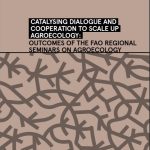
6 downloads
Title of document: Catalysing dialogue and cooperation to scale up agroecology: outcomes of the FAO regional seminars on agroecology Authors: FAO Journal’s name if any: Ministry/Government Agency/Organisation: FAO Year of publication: 2018 Geographic focus: Global level Main issues / topics addressed (for example: Agroecology: transitions to sustainable food systems; Agroecology for food security and nutrition: key issues from the seminars; Common recommendations from the seminars on agroecological transitions ……) School of agroecology (if any): Web address to original document (if any): http://www.fao.org/documents/card/en/c/I8992EN/ Summary: The document is prepared in the perspective of the 2nd international Symposium in April 2018. It will give a feedback of the global FAO process on agroecology and discuss the main challenges regarding agroecology Region by Region, identifying key drivers to scale up agroecology and highlighting key initiatives undertaken in the region Read More
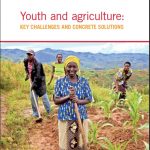
8 downloads
Title of document: Youth and agriculture: key challenges and concrete solutions Authors: FAO, CTA, IFAD Journal’s name if any: Ministry/Government Agency/Organisation: FAO, CTA, IFAD Year of publication: 2014 Geographic focus: Global level Main issues / topics addressed (for example: Access to knowledge, information and education; Access to land; Access to financial services; Access to green jobs; Access to markets……) School of agroecology (if any): Web address to original document (if any): http://www.fao.org/3/a-i3947e.pdf Summary: This publication provides real life examples on how to re-engage youth in agriculture. It shows how tailor-made educational programmes can provide rural youth with the skills and insights needed to engage in farming and adopt environmentally friendly production methods. Many of the initiatives and approaches reported in this study originate from the youth themselves. Read More
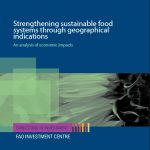
5 downloads
Title of document: Strengthening sustainable food systems through geographical indications: An analysis of economic impacts Authors: Emilie Vandecandelaere; Catherine Teyssier; Dominique Barjolle; Philippe Jeanneaux; Stéphane Fournier; Olivier Beucherie Journal’s name if any: Ministry/Government Agency/Organisation: FAO Year of publication: 2018 Geographic focus: Global level Main issues / topics addressed (for example: Background: what does the literature have to say about geographical indications and their impacts?; Framework of analysis; GI processes and their economic impacts; Synthesis of causal mechanisms and success factors ……) School of agroecology (if any): Web address to original document (if any): Summary: This study seeks to provide empirical evidence on the economic impacts that are generated through the GI process, beginning with the official recognition of a GI and the steps that follow. It focuses on the food sector and reviews nine cases, offering a variety of national contexts and local value chains. Read More

 Asia & Mekong Region
Asia & Mekong Region  Cambodia
Cambodia  Laos
Laos  Myanmar
Myanmar  Other
Other  Vietnam
Vietnam